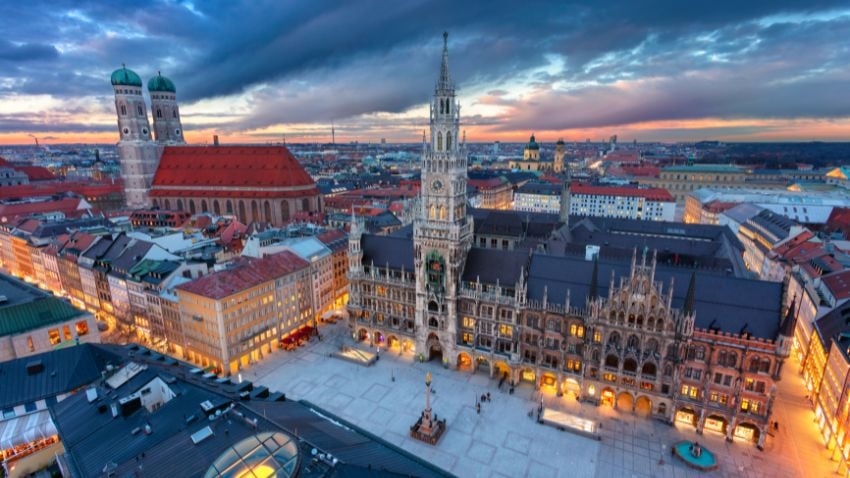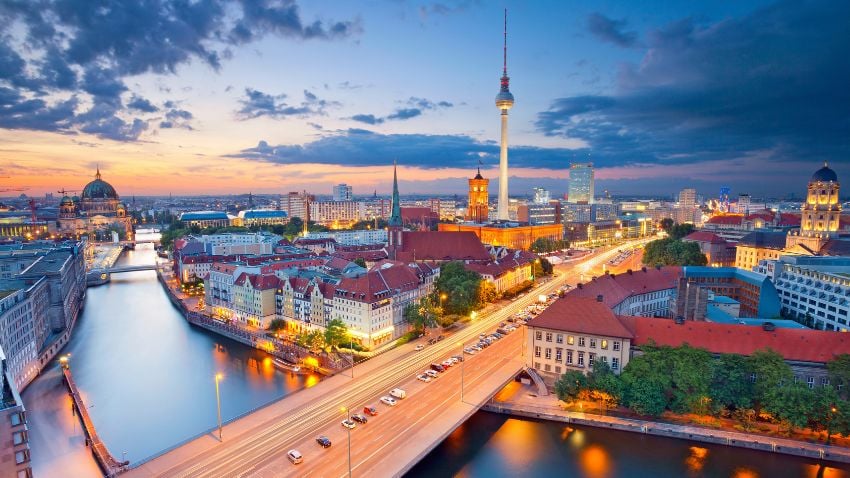Best Cities To Live In Mexico In 2026
Mexico remains one of Latin America’s most compelling destinations, especially for North Americans. More than a million expats call it home, and tens...

3 min read
As discussed in a previous article, Germany has drafted a new law to facilitate dual citizenship. Although final approval is still pending, this is a beacon of hope and opportunity for both foreign workers and German expats.
This European country, especially major cities like Berlin and Frankfurt, has become a melting pot of cultures, but naturalized foreigners are not that common. Also, German citizens who yearned for a second passport couldn’t do so unless they renounced their German citizenship. Germany has always had strict naturalization policies, so this law signifies a crucial shift.
Whether you’re a skilled professional considering the prospect of making Germany your new home, a long-term resident or a native German looking for a second passport, this article will show you the latest updates on the law to help you make an informed decision.
Let’s begin.

Boon, Germany
Nowadays, Germany is undergoing a significant shortage of skilled workers, and this new approach to immigration and citizenship intends to ease the way to German citizenship for these professionals. This move is not just a matter of policy but a strategic move to reinforce the labour force and economic vitality.
Known for its robust economy and startup ecosystem, Germany faces a demographic and economic challenge due to an aging population, declining birth rates and a shortage of skilled labour across various sectors, such as healthcare and tech. Therefore, the new piece of legislation, still awaiting approval, will focus on attracting qualified professionals to tackle these issues.
In response to this situation, Germany proposes new regulations allowing skilled workers to bring not only their spouses and children but also their parents and parents-in-law. This move recognizes the importance of family unity in the decisions of potential immigrants. Imagine a skilled software engineer from India considering a move to Germany but doubtful because he doesn’t want to leave his parents behind. Now, the new law would address such concerns, turning Germany into a more appealing destination.

Cologne, Germany
However, these provisions come with responsibilities. Skilled workers will need to show proof of sufficient funds or income to support their extended families and have health insurance. Many EU countries, including Germany, have suffered severe burdens on their public service systems because of welfare-driven immigration. For that reason, the government wants to ensure the influx of extended family members does not drain resources, and potential migrants must demonstrate they will not be a financial liability to the state.
This proposed legislation presents multiple benefits to Germans, long-term residents and potential migrants, but the path to effective implementation has seen numerous delays and disagreements among coalition parties. Initially, the law was expected to come into effect in January 2024, but the current tentative date is April 2024.

Berlin, Germany
This draft bill aims to ‘modernize’ naturalization rules, allowing foreigners who have significantly contributed to the economy and proven their integration (B1 level of German language) to acquire German citizenship without giving up on their previous one.
This modernization of Germany’s naturalization policies is mainly focused on the guest worker generation, especially Turkish natives who moved to the country during the last century. However, other nationalities will also benefit. Foreigners who established roots in Germany could get a German passport while retaining their original one, thus expanding their passport portfolio.
Note that German citizens won’t need to report their plans to acquire a new passport either. Until now, the government has demanded Germans share their intentions to get naturalized in other countries, and in multiple cases, this has meant the forceful renunciation of German passports. Sooner or later, having a German passport and others will be possible.
According to the Henley Passport Index, Germany’s passport is the strongest in the world, offering visa-free access to 194 destinations. The most concerning limitation of it was just the little room it had for double citizenship. For the most part, it was either a German passport or somewhere else’s. The new law would elevate the German passport’s attractiveness, making it a solid choice for a second passport. Many clients of mine want EU passports in their portfolio and invest millions to get one, so if you happen to have the right profile and like Germany, by all means, I’d suggest you go for this. Conversely, it opens the door for Germans to explore second citizenship in case of a possible fall of the EU, a desire to optimize their tax bill or just live elsewhere. All in all, it’s a phenomenal opportunity for increased global mobility.

Frankfurt, Germany
In conclusion, Germany’s proposed dual citizenship law is an initiative that, though primarily focused on attracting foreign talent and rewarding the guest worker’s contributions, will benefit Germans in their pursuit of a second passport. The country is dealing with severe demographic and economic challenges, hence this policy shift that will help thousands and, potentially, millions of foreigners and Germans.
If you want the best intel from the expat world, including profitable offshore opportunities, little-known tax-saving strategies, and hard-won insights on immigration, passports, and Plan-B residencies, all delivered to your inbox every single week, then join our daily correspondence, EMS Pulse®. Currently enjoyed by over 84,000 expats and expat-hopefuls worldwide. Fill in the form below to join our newsletter free:

Written by Mikkel Thorup
Mikkel Thorup is the world’s most sought-after expat consultant. He focuses on helping high-net-worth private clients to legally mitigate tax liabilities, obtain a second residency and citizenship, and assemble a portfolio of foreign investments including international real estate, timber plantations, agricultural land and other hard-money tangible assets. Mikkel is the Founder and CEO at Expat Money®, a private consulting firm started in 2017. He hosts the popular weekly podcast, the Expat Money Show, and wrote the definitive #1-Best Selling book Expat Secrets - How To Pay Zero Taxes, Live Overseas And Make Giant Piles Of Money, and his second book: Expats Guide On Moving To Mexico.

Mexico remains one of Latin America’s most compelling destinations, especially for North Americans. More than a million expats call it home, and tens...

South Korea is far more than K-pop and K-dramas. It is a country known for outstanding food, from bustling street markets to high-end dining, as well...

Asia is one of the most fascinating regions in the world for travel, offering an extraordinary mix of cultures, histories, and landscapes. From...